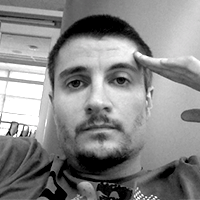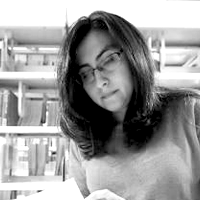You are here :
Bachelor Data Science by Design : The Team
Valérie NACHEF
Director of the Bachelor Data Science by Design

She is Associate Professor in Mathematics at CY Cergy Paris Université. Her former research was descriptive set theory and functional analysis. She now works in cryptography. She published articles in many international conferences and she is also the co-author of a book in private key cryptography.
For several years, she was the director of International Relations and Deputy Vice-President for International Relations at the University of Cergy-Pontoise.
She is now the director of the International Bachelor Data Science by Design.
Elian MASNADA
Vice-Director of the program

After this, he did, in the same field, a postdoc with Pr. Jean-Louis Barrat at the University of Grenoble (supported by Michelin) and finally, in 2014, he got a position at Georgetown University (Washington DC) in the Group of Peter Olmsted where he was working on the Navier-Stokes equation applied to viscoelastic fluids.
Since 2020, he is working on statistical physics applied to soft matter at the LPPI (CY Cergy Paris Université). As a teacher, he has taught, from undergrad to graduate students mathematics, theoretical physics, electrical engineering and quantum computing.
Matthieu CISEL

During his PhD at ENS Paris-Saclay, he worked on the topics of disengagement in MOOCs through the lens of learning analytics. As a post-doctoral fellow in Université Paris-Descartes, he specialized in the field of learning environment design.
In the Bachelor’s program, he is in charge of the Project Learning Unit.
In this unit, students are asked to develop learning apps based on artificial intelligence. He also teaches some basic methods in the field of statistics. In addition to these responsibilities, he is involved in the design of strategies to help digitalize the curricula.
Constanza ROJAS-MOLINA

This was followed by a PhD in Mathematical Physics at the Universite de Cergy-Pontoise (currently CY Cergy Paris Université). After her PhD, she spent time as a visiting researcher in Stockholm, Paris and Maribor, in Slovenia. She then moved to Germany, where she she did a two-year postdoc at the Analysis Group of the University of Munich, (LMU) thanks to a Marie Curie Fellowship. This was followed by two and a half years at the University of Bonn as a postdoc in the Probability Group, before obtaining a Junior-Professor position in Stochastics at the University of Düsseldorf.
After one year in Düsseldorf, she could not resist moving back to France to become part of the recently created International Bachelor Data Science by Design at CY Cergy Paris Université.
Her research focuses on the theory of random Schrödinger operators, a field of mathematical-physics that combines functional analysis, probability and physics. She collaborates with colleagues in France and abroad, in Germany, US, Poland, and Chile. She shares her working time among teaching, research and science communication. In the past years, her teaching involved both analysis and probability courses, to undergraduate and graduate levels.
Thanos MANOS

After obtaining his PhD, he has worked as post-doctoral researcher at the Max Planck Institute for the Physics of Complex Systems, Dresden (Germany), University of Florence (Italy), University of Nova Gorica (Slovenia), University of Maribor (Slovenia) and as a senior researcher at the Institute of Neuroscience and Medicine (INM-7) at the Research Centre Jülich (Germany).
Since September 2019, he has been working as Assistant Professor at the Department of Physics, Laboratoire de Physique Théorique et Modélisation (LPTM) of CNRS, CY Cergy Paris Université (France).
He is a lecturer and project supervisor at the “International Bachelor Data Science by Design” at CY Cergy Paris Université.
Marcus PIVATO

His main research interests are collective decision-making, social welfare, and normative economics. Earlier in his career he also studied cellular automata and other dynamical systems.
He has published more than 50 academic research articles in theoretical economics, mathematics, and philosophy, as well as a textbook on linear partial differential equations and Fourier theory, and he is on the editorial boards of five journals.
From 2014 until 2018, he held the Labex MME-DII Chaire d'Excellence at CY Paris Université. He received his B.Sc. in Mathematics in 1994 from the University of Alberta, and his PhD. in Mathematics in 2001 from the University of Toronto.
Emilie DUPONT

Then, she taught at the Universities Pierre and Marie Curie, Paris (2007-2008), Cergy-Pontoise (2010), Caen (2012-2013).
She also taught Sciences and Mathematics at middle and high school levels in Saint-Pierre and Miquelon (2008-2009), Lisieux (2013-2014) and Caen (2014-2015).
Yérali GANDICA

She spent seven years between four Postdoctoral positions in Europe. First, at the Center for Computational Physics in the Universidade de Coimbra, Portugal. There she started studies on Agent-based models and Big Data.
Secondly, she got a Postdoctoral fellow at the Namur Center for Complex Systems (naXys) at the Mathematics Department of the University of Namur, where she worked on Agent-based models (ABM) and started on Network Science. Afterwards, she joined the Center for Research in Finance and Management (CeReFiM), at the Business Department of the Faculty of Economics, Social Sciences and Business Administration in the Université de Namur. During that Postdoctoral fellowship, she started applying the concepts of Network Science to financial data.
Later on, she worked on an Associate Scientific Researcher at the Center for Operations Research and Econometrics (CORE) and at Institute of Information and Communication Technologies, Electronics and Applied Mathematics (ICTEAM) at the Université Catholique de Louvain, working on Geo-localised Data.
Yérali has complemented her training following several courses in sociology (the first three years of this major).
She also has a broad experience working in computational social science, Big Data and network science among several interdisciplinary groups (mathematics, finance, geography, engineering and biology).


